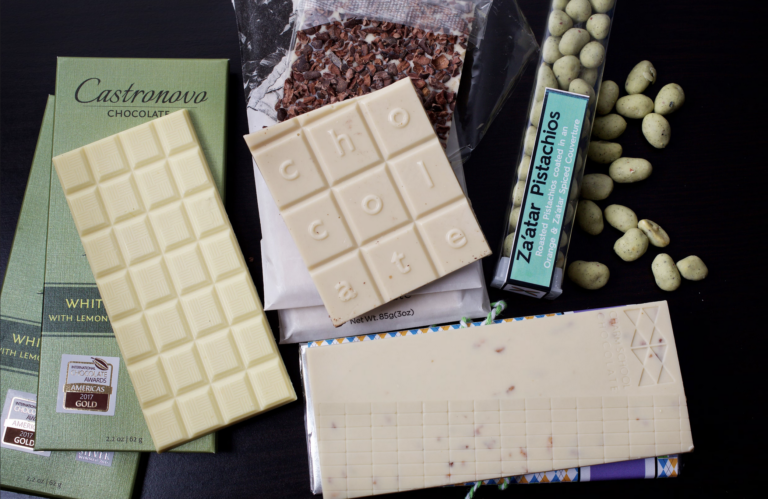
Best White Chocolate in the World
This article explores the origins and history of chocolate, tracing cacao’s use and cultural significance among ancient Mesoamerican civilizations like the Maya and Aztec. It
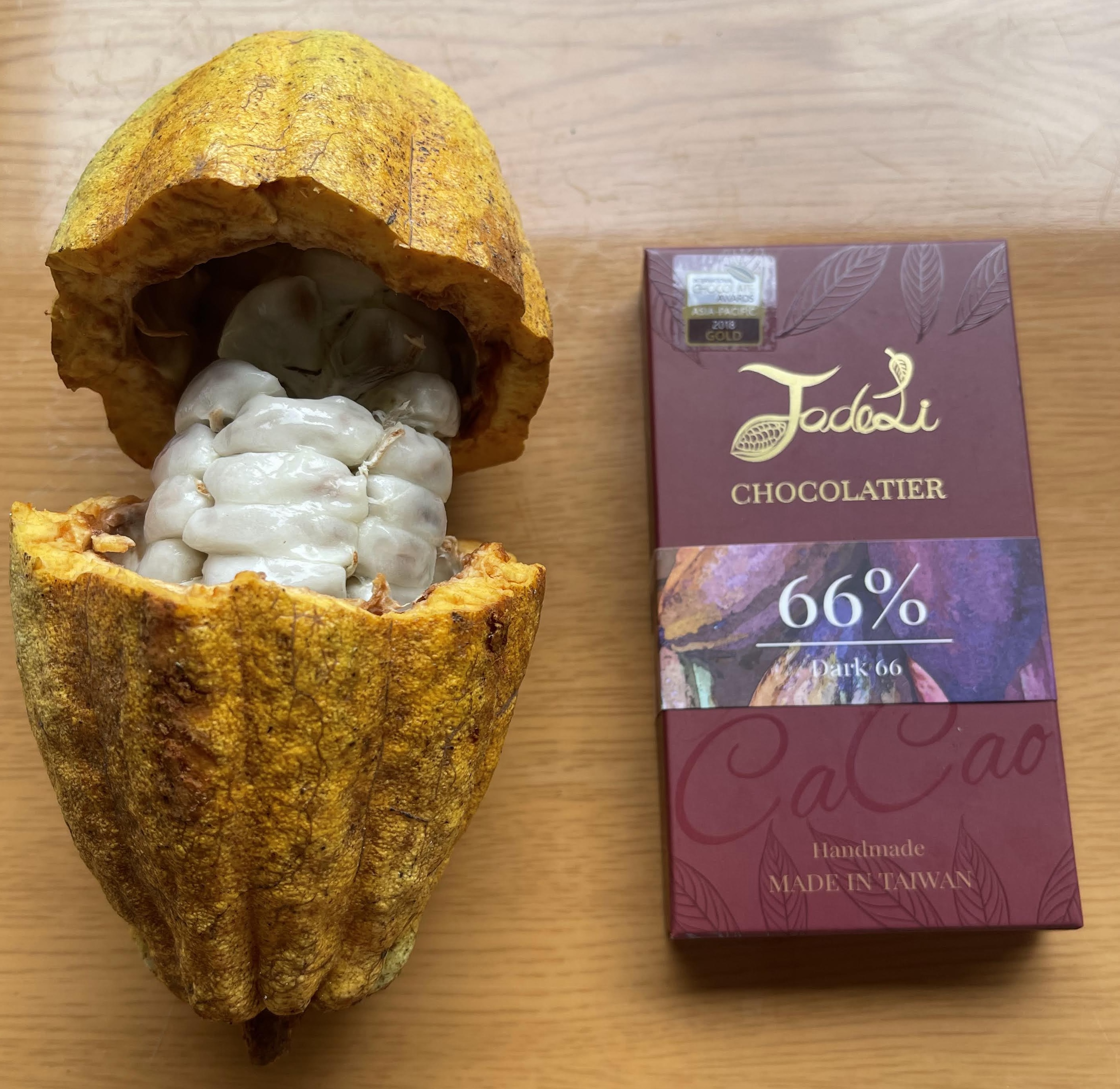
PINGTUNG COUNTY, Taiwan – Under the tall and slender betel nut trees, 77-year-old Mr. Chou carefully tends to his small cacao farm that he has cultivated for more than three decades. He represents both the origins and an uncertain future of the emerging cacao industry in Taiwan.
Mr. Chou was the first local farmers to begin growing cacao in this lush, tropical county after his daughter returned from studying in Australia with cacao seedlings in tow. With his friend Mr. Chiu, owner of one of Taiwan’s first coffee shops, they pioneered techniques for growing and processing cacao that helped establish Pingtung as one of Asia’s premier regions for cacao production. From these humble beginnings just ten years ago, Taiwan’s niche craft chocolate scene was born.
Yet the first generation of Taiwanese cacao farmers like Mr. Chou are now entering their 70s and 80s at the same time that Taiwan faces a declining rural population and record low birth rates. Their knowledge and expertise in growing cacao may fade along with them.
Our international chocolate awards pay tribute to the obsessive, passionate individuals striving for chocolate perfection around the world. We honor renowned European chocolate houses who have perfected their bonbon and truffle recipes for generations alongside emerging bean-to-bar chocolate makers experimenting with bold ingredients like black currant and elderflower. During our blind tastings, we judge each craft chocolate bar and bonbon on its flavor, aroma, textures and craftsmanship to identify the best chocolate in the world.
See the winners +
This picturesque county along Taiwan’s southern tip has a unique terroir that lends distinctive flavors to chocolate. Much like vineyards, the complex interplay between climate, soil, and production techniques manifests in the final product. However, this also led to complexity in the development of the fledgling industry.
Beginning in 2010, the local Hakka farmers planted cacao varieties sourced from all over the world, resulting in a lack of consistency. Cross-pollination and grafting between trees on the small, multi-variety farms led to further diversification. Farmers originally had no protocols for fermentation, often doing so in tiny batches with ingredients blended together, making standardization near impossible.
Through government programs and collaboration with academia, the farming and processing techniques improved substantially. Today, Taiwan’s craft chocolate makers produce bars that rival the world’s best. Yet the industry remains on unsteady footing.
Most cacao farms in Pingtung county are miniscule operations, with mature trees numbering in the dozens rather than hundreds. The economics of such small-scale production are tenuous despite the high quality output. For farmers like Mr. Chou, their tree-to-bar chocolate is sold mostly at local markets rather than broader retail or online distribution.
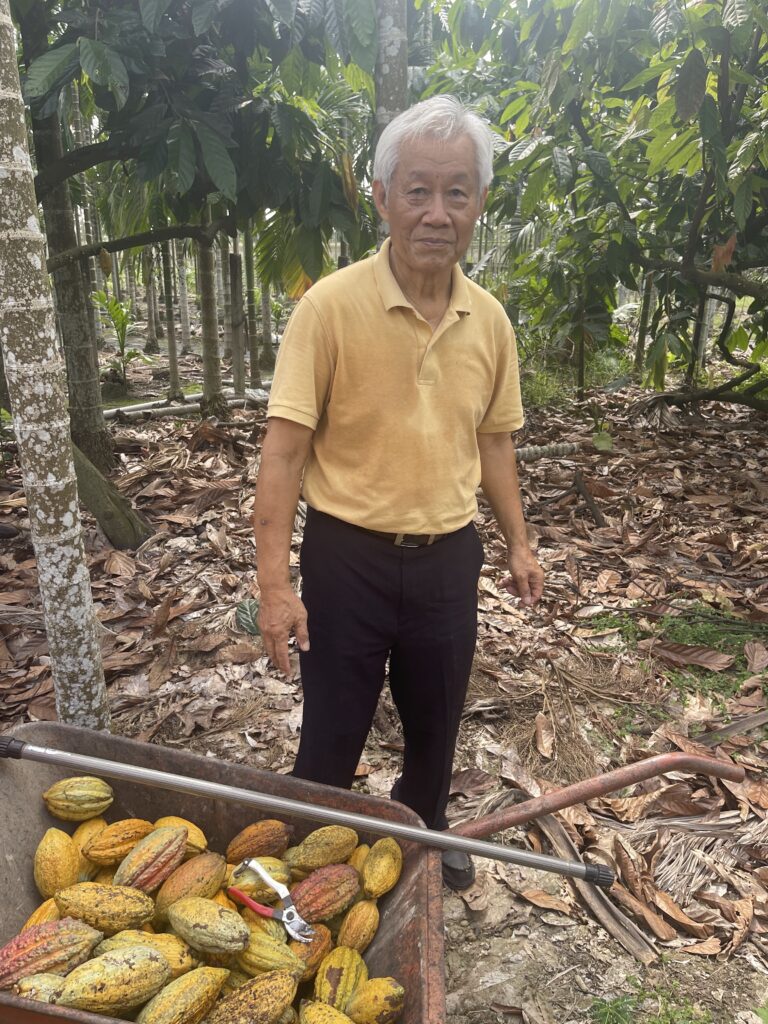
During a tour of his quarter-acre farm, Mr. Chou showcases a small part of his annual production of 80 kilograms of dry cacao beans. Cacao farmers are compensated based on the weight of dry beans, typically requiring 16 kilograms of raw cacao pods to yield 1 kilogram of dried cocoa beans. Mr. Chou tells me that he focuses on high concentration 85-100% dark chocolate coveted by locals for its health properties. Each harvest and batch brings unique flavor variations from his roughly 65 trees. It is a labor of love as much as a business.
The government is stepping in to secure the future of cacao here. They are encouraging older farmers to merge operations that lack heirs in order to create larger, more sustainable (although geographically separated) farming corporations and cooperatives. Other private cooperatives like TC15 are also working with small farms to process and market chocolate under a common brand. Pingtung supplies most of Taiwan’s world-class chocolate makers. This includes Jade Li who is one of Mr. Chou’s biggest buyers.
Ms. Li is playing a crucial role in preserving the legacy of Pingtung County’s emerging cacao industry. After establishing her award-winning chocolate brand JADELI Chocolatier in Taiwan in 2018, she partnered with local cacao farmers like Mr. Chou to source high quality cacao for her creations. In fact, it was Ms. Li who facilitated my visit to Mr. Chou’s farm to showcase the small-scale production of some of Taiwan’s most esteemed chocolate makers.
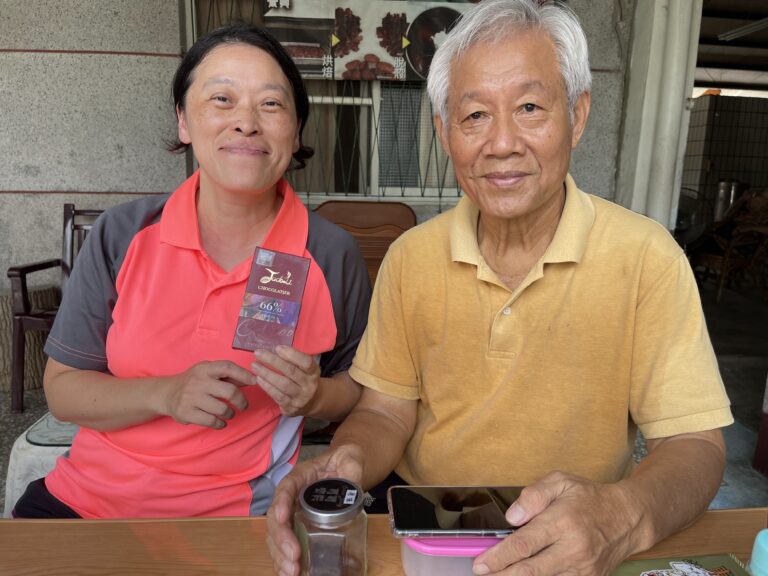
At Mr. Chou’s farm, Ms. Li described the unique challenge of working with such small harvests, where batch-to-batch variations in flavor require artistic blending. It is through identifying and collaborating with the top growers in the region that Ms. Li is on a mission to highlight the terroir and high quality of Pingtung County cacao. Her brand is helping improve the economics of small farms by connecting them with chocolate aficionados willing to pay premium prices.
In just a few years, Ms. Li has won top honors at international chocolate competitions for her technical skill and innovative flavors. I can personally attest to the amazing, innovative, and almost-too beautiful-to-eat bonbons (prosciutto-macadamia nut anyone?) and her Dark 66 bar, which is absolutely to die for. Though her career is on the rise, Ms. Li remains committed to advancing Taiwan’s cocoa industry.
Beyond her own accolades, Ms. Li is dedicated to teaching the next generation of Taiwanese chocolate makers. She shares her expertise by teaching at universities and bakery schools across Taiwan, holds a patent for molding processes, and is the author of an authoritative book on chocolate making. Ms. Li also serves as a judge at major chocolate competitions, helping evaluate and mentor new talent. She represents the future of gourmet chocolate in Taiwan through both her chocolate artistry and mentorship.
Ms. Li recognizes that Taiwan’s chocolate culture is unique. “Regardless of my skill, I cannot produce good chocolate without quality cocoa beans. This emphasizes the crucial collaboration with cocoa farmers,” she tells me. Still, challenges remain. The emerging consumer market for craft chocolate in Taiwan is tiny compared to tea drinking culture. High costs limit the ability to scale up production and achieve widespread retail distribution.
Against this backdrop, the pioneers of Taiwanese chocolate continue to perfect their craft one harvest at a time, just as Mr. Chou does on his small family farm. Their success will determine whether the tropical cacao orchards of Pingtung county can survive and prosper along with Taiwan’s evolving rural economy. As for Ms. Li, she sees the divine presence in chocolate and sees herself as a connector and someone who “serves as a bridge, using chocolate to connect people with each other and with the creator, writing the story of this land with chocolate.” Here’s to Taiwanese craft chocolate.
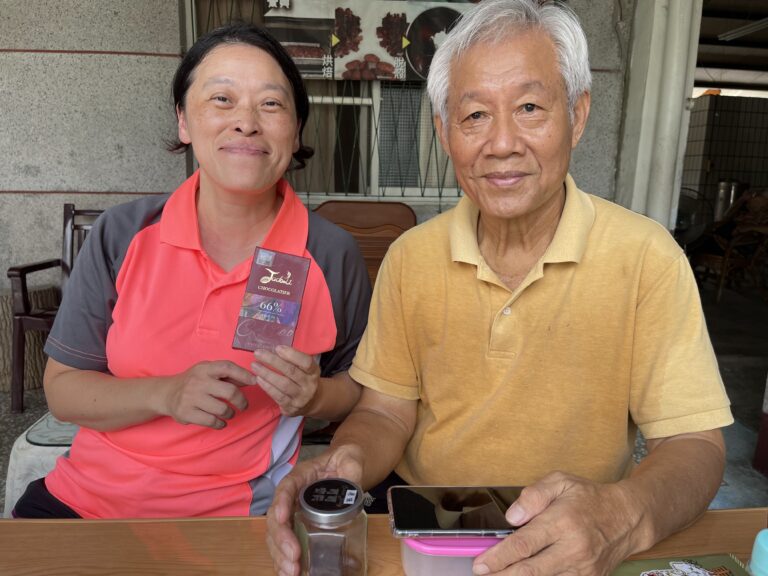
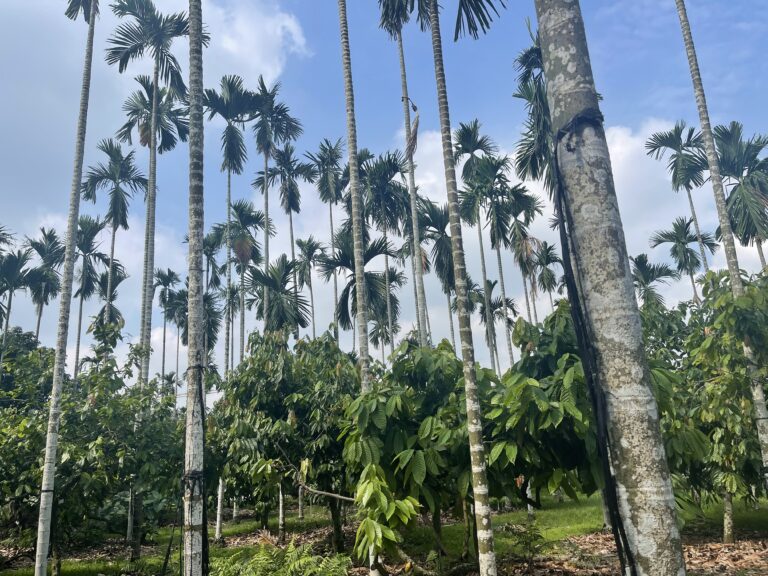
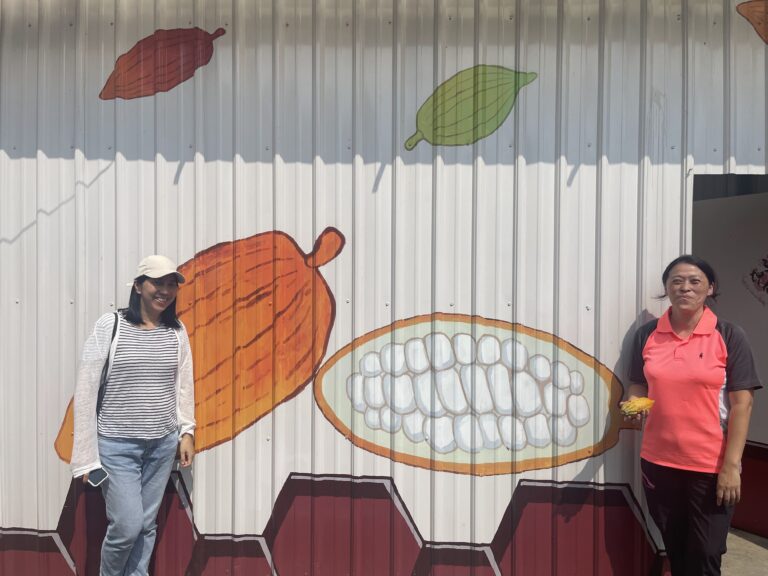
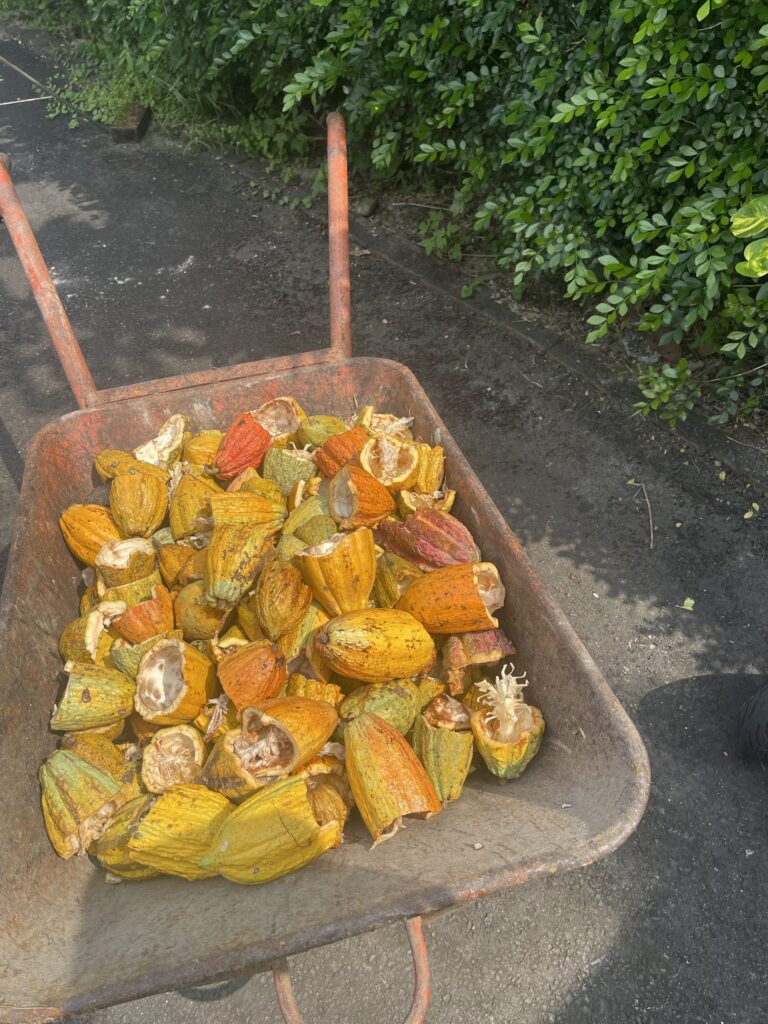

This article explores the origins and history of chocolate, tracing cacao’s use and cultural significance among ancient Mesoamerican civilizations like the Maya and Aztec. It

Embark on a journey through Taiwan’s lush Pingtung County, where 77-year-old Mr. Chou pioneers small-scale cacao farming, and award-winning chocolatier Jade Li transforms each harvest
Keep up-to-date on upcoming chocolate awards